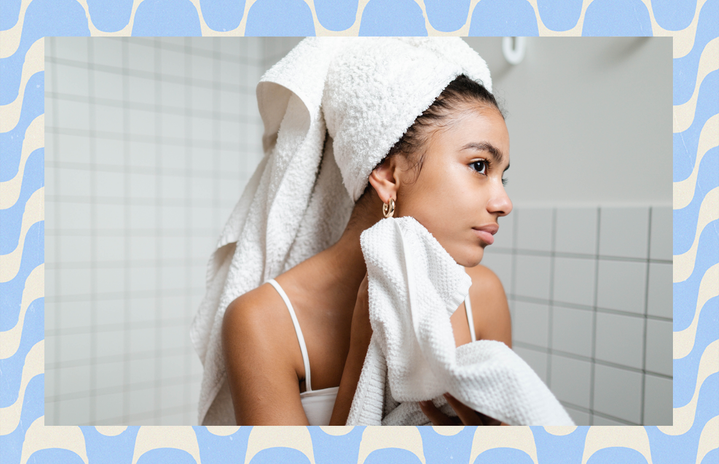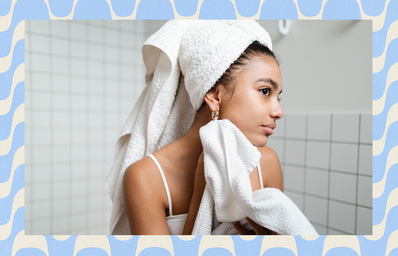Whether it be on the internet, in a self-help book or in casual conversation, the word “self-care” is everywhere. The National Institute of Mental Health defines“self-care” as “taking the time to do things that help you live well and improve both your physical health and mental health.” Even though the term “self-care” emphasizes holistic care for the whole person, society today has diminished the significance of the word, reducing it to just another marketing tactic or social media buzzword.
Self-care is extremely important and does have proven physical and psychological benefits. According to The World Health Organization, “Self-care is the ability of individuals, families and communities to promote health, prevent disease, maintain health, and cope with illness and disability with or without the support of a health worker.” Self-care recognizes individuals as “active agents in managing their own health care.” Alongside physical health, self-care is also a well-established concept in the field of psychology. However, though self-care is a concept that has been emphasized by health professionals for decades, the word has recently gained trendy traction with Gen Z and millennials. In fact, the number of searches for “self-care” on the Internet has quadrupled since 2018.
Self-care has recently evolved into a popular trend on social media. In recent years, mental health has become less stigmatized as younger generations seek mental health treatment and discuss mental health-related topics with one another. A report from the American Psychological Association shows that members of Gen Z are more likely to report mental health concerns than any other demographic group. Many people feel inclined to use their online platforms to educate others about mental health and share their lived experiences. Mental health conversations are extremely common on social media, but this has unfortunately resulted in “self-care” being treated like a trend.
While this mental health awareness is certainly important, not everyone is equipped to be a mental health expert. Instead of advocating for exercise, sleep and healthy eating, influencers on social media have saturated the term and the movement as a whole by using it as a medium to sell to consumers. For example, rose quartz rollers, avocado toast and skin-care fridges are labeled as “self-care” necessities. The companies selling these products are not only selling items but also selling the idea that people have to buy something to do self-care; self-care has become rooted in materialism. Rather than promoting proper education and health resources, people are capitalizing on this term and trivializing the topic in its entirety.
Furthermore, many self-care trends unintentionally exploit mental illness. A 2022 survey shows that 42% of Gen Z young adults from the ages of 19 to 24 have a diagnosed mental illness. Many marketers have taken advantage of the newfound mental health awareness. More specifically, YPulse data has shown that 71% of Gen Z consumers like companies and brands that have a focus on mental health in their marketing. This emphasizes how mental health has become a marketing tactic that companies are willing to employ.
In addition, self-care is now being treated like a distractor. Today, there are a plethora of stressors that impact people’s everyday lives. While self-care might alleviate some of this stress, self-care cannot solve trauma, oppression or mental illness. Instead, self-care undermines the issue and attempts to bring our attention away from these difficult conversations instead of tackling them head-on. Distractions are a good way to destress but people often have underlying issues and conflicts that they need to confront. For example, while therapy and counseling cannot cure mental illness or dissolve trauma, psychological treatment can reduce symptoms and distress. These treatments can take months or even years, but they often elicit long-term benefits. These issues cannot be pacified by what social media advertises as “self-care practices.”
Ignoring the root and reality of one’s problems with material items is never the solution. As researcher Dr. Kristen Lee in her article states, “Self-care without deeper change isn’t enough; creating access and equity is essential.” Not everything can be solved with an iced coffee and eye cream. Self-care should not be monetized by companies but rather should be the habits and actions that people prioritize in their everyday routines in order to maintain their health.
In order to truly understand effective self-care, one must distinguish the different types of self-care: emotional self-care, physical self-care and spiritual self-care. Emotional self-care involves preserving mental health; some examples include setting boundaries, taking breaks and discussing your feelings. Physical self-care is treating one’s body with the respect it deserves. Physical self-care typically involves exercise, nutrition and hygiene. Spiritual self-care is a broad term that refers to taking care of one’s spiritual health. Spiritual self-care can differ from person to person as people have different religious and spiritual beliefs. Examples of spiritual self-care include attending a service, going out into nature, meditating or starting a gratitude journal.
Self-care is a diverse practice and many self-care practices do not require tangible items as social media may suggest. Here are some ways to practice self-care that mental health care professionals recommend.
Get Regular Exercise
Most health professionals recommend getting 30 minutes of physical activity per day. This can be anything from walking, sports or yoga. Small amounts of exercise add up so you don’t necessarily need to devote 30 minutes of your day to exercising if your schedule doesn’t allow it. You can break it into smaller chunks as you see fit.
Nutrition
It is important to maintain a healthy, balanced diet. Eating consistently rather than skipping meals can boost your metabolism and energize you. In addition, staying hydrated is also vital to taking care of yourself.
Sleep Schedule
Getting enough sleep (8-10 hours) is vital for having good mental health. Stay away from blue light before bed and try not to work or scroll on your phone in bed. Your bed should be a relaxing space for you.
Relaxing Activities
There are many activities that can benefit your physical and mental health. For example, meditation, muscle relaxation and breathing exercises are all recommended to incorporate wellness into your everyday life. There are many free apps online and local programs that can help you practice these activities.
Self-care is a necessity for our survival, but you don’t need to spend an enormous amount of money to see the results of effective self-care. Our society must shift our perspective on self-care and recognize it as a health-based practice rather than an aesthetically pleasing trend. Self-care should be rooted in health professionalism, not consumerism. Let’s keep self-care accessible, so it can remain helpful.


